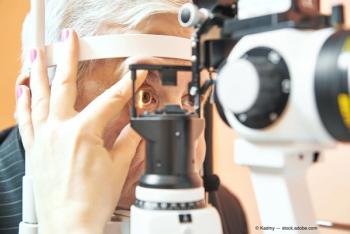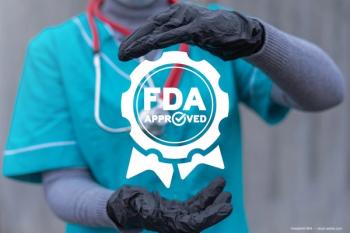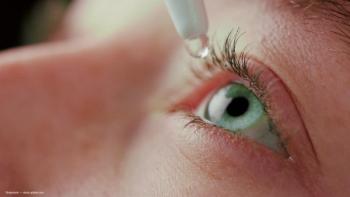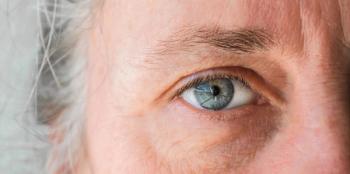
Therapeutics
Latest News


Kiora publishes results from study demonstrating safety, tolerability and efficacy of KIO-101 for treatment of inflammation of the eye
Latest Videos
CME Content
More News

ACDN-01 is the first-ever RNA exon editor to enter clinical development and the only clinical-stage therapeutic targeting the genetic cause of Stargardt disease. Ascidian expects to initiate enrollment in Phase 1/2 STELLAR study in the first half of 2024.

The recall is “due to potential safety concerns after FDA investigators found insanitary conditions.”

Two retina specialists participated in an Ophthalmology Times case-based roundtable discussion and shared their experiences using the anti-VEGF biosimilars, ranibizumab-eqrn and ranibizumab-nuna to manage retinal diseases.

According to the company, MicroPine, currently in late phase III for pediatric progressive myopia, will complement Eyenovia’s commercial-stage asset, Mydcombi, as well as its pre-PDUFA candidate, APP13007.

The revision is in response to multiple recalls for eye drops and instances of consumer injury and death in 2023.

DED incidence rates vary markedly depending on the ophthalmic practice.

The company announced plans to enroll 320 volunteers in the study. Vezocolmitide is the first drug candidate based on PolyCol, Stuart Therapeutics' patented synthesized polypeptide collagen mimetic peptide platform.

Anchored matching-adjusted indirect comparison may aid decision-making

Viridian's VRDN-003, a subcutaneous therapy for thyroid eye disease, has demonstrated positive data in a Phase 1 clinical study, with an extended half-life of 40-50 days. The company plans to initiate global pivotal trials in mid-2024, aiming to transform TED treatment with less frequent dosing intervals.

NCX 470, a novel nitric oxide-donating bimatoprost eye drop, is the company’s lead product candidate in Phase 3 clinical development for IOP lowering in patients with open-angle glaucoma or ocular hypertension.

Glaukos Corp's iDose TR has received FDA approval for the reduction of IOP in patients with ocular hypertension (OHT) or open-angle glaucoma (OAG) following a new drug application (NDA) submission.

According to the company, OCU410 is a modifier gene therapy product candidate being developed for dry AMD

Ophthalmology witnessed a transformative year with 12 FDA approvals. As the year concludes, there remains a robust pipeline of drugs, setting high expectations for continued advancements in ophthalmological care in 2024 and beyond.

TP-03 (lotilaner ophthalmic solution, 0.25%) was approved by the FDA in 2023 under the brand name Xdemvy for the treatment of Demodex blepharitis and s being evaluated as an investigational therapy for the treatment of Meibomian Gland Disease (MGD) in patients with Demodex mites.

This is just one of many times the FDA has issued a warning to companies for the sale of unapproved ophthalmic products in 2023.

ATSN-101, a gene therapy for GUCY2D-associated Leber congenital amaurosis, has demonstrated clinically meaningful improvements in vision at the highest dose with no drug-related serious adverse events 6 months post-treatment in ongoing Phase I/II clinical trial.

TRS01 has the potential to be the first-line treatment option for non-infectious uveitis and specifically uveitic glaucoma, according to the company.

According to the company, OCU410ST uses an AAV delivery platform for the retinal delivery of the RORA (RAR Related Orphan Receptor A) gene.

Ophthalmologists should consider a few key points before writing a prescription.

Peter K. Kaiser, MD, shares a promising outlook for patients with dry age-related macular degeneration, with innovative therapies in development that have the potential not only to prevent vision loss but also improve visual acuity.

Analysis showed low-dose, preservative-free formulation of atropine is effective in slowing progression in children aged 3 to 17, living in the US and European Union.

Researchers conducted a study on 145 patients with night vision problems, testing the effects of 0.75% phentolamine ophthalmic solution. The trial demonstrated substantial improvement in visual acuity on both evaluation days.

The clinical trial will evaluate the safety and efficacy of CLS-AX (axitinib injectable suspension), a tyrosine kinase inhibitor. According to the company, topline data is expected during the third quarter of 2024.

By taking a proactive approach to treatment, ophthalmologists can identify the “silent sufferers.”

New drugs are now in the pipeline to focus on treatment of the disease.































